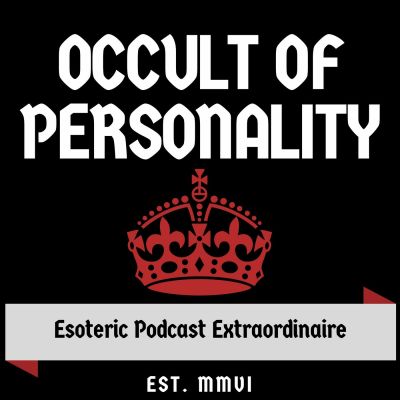Occult of Personality podcast is a long-form audio interview program featuring conversations with experts in occultism and esotericism. Since 2006.
https://www.spreaker.com/user/occultofpersonality
The Crescent and the Compass with Angel Millar
Angel Millar, author of the groundbreaking new book The Crescent and the Compass: Islam, Freemasonry, Esotericism, and Revolution in the Modern Age, published by Numen Books, is our guest in podcast episode 154.
“From the middle of the nineteenth century, Islam and Freemasonry came to be connected in strange but significant ways that, ultimately, helped shape the world we are living in today. Prominent Muslims that were Freemasons, at least for a period include:
* Shaykh Quilliam, founder of the first mosque in Britain.
* Abd al-Qādir ibn Muḥyī al-Dīn, leader of the Algerian resistance against the French.
* Sayyid Jamal ad-Din al-Afghani, founder of anti-colonial politics in the Middle East.
* Muhammad Abduh, Grand Mufti and theologian.
“Moreover, although Freemasonry is often seen, today, as an “old boys’ club,” that was not how Muslims of the nineteenth century viewed it, or why they joined.
“Although he quickly became disillusioned, ʿAbd al-Qādir viewed Freemasonry as a brotherhood of man that held out the possibility of transcending religious and ethnic divisions, though (unlike communism or socialism) still believing in God, while al-Afghani attempted to use his membership of Freemasonry to promote his radical, political, anti-Western, message in the Middle East.In Britain, Quilliam — a prolific defender of the rights of Muslims — was involved with several of the more secretive spiritual, esoteric, and initiatic forms of Freemasonry (many Freemasons would have been unaware that such societies existed).
“Islam and Freemasonry also captured the imagination of some of the most important spiritual adventurers in the West. Freemason and occultist Aleister Crowley, for example, authored the little known Scented Garden of Abdullah. According to Crowley, the book — which is based on Sufi poetry, and contained Arabic script as well as English in the original edition — transcended both the Hindu Bhagavad Gita and the Tao Te Ching. Likewise, having grown up Catholic, before becoming a Freemason, French spiritual thinker René Guénon later adopted Islam, and spent his final years in Cairo. Guénon is best known for founding the Traditionalist school of metaphysics, which — though embracing all of the world’s major religions — produced many notable scholars of Islam.
“Some Masonic and “fringe Masonic” organizations were also founded, drawing on Islamic tradition. Most notably, the Ancient Arabic Order of the Nobles of the Mystic Shrine (the “Shriners”) claimed, originally, to have descended from Sufism, and to be a Western equivalent of the Islamic mystical school.”
The Crescent and The Compass is the first book to explore the many connections between Muslim activists, Islamic spirituality, Freemasonry, and the Western spiritual underground, of the modern era.
“Shedding new light on the ideas of Islamic mysticism, ‘Traditionalism’ and the seeds of eastern gnosis hidden deep within western history, The Crescent And The Compass will hopefully spark a resurgence of exploration and dialogue between eastern and western fields of esoteric scholarship, allowing new ideas to emerge that can hopefully provide much-needed guidance out of the dark haze of fundamentalist thought… This is a vital work on the influence of Islamic gnosis on western streams of esoteric spirituality… It should be closely examined by all individuals interested in Islam and the West.” — Craig Williams,
